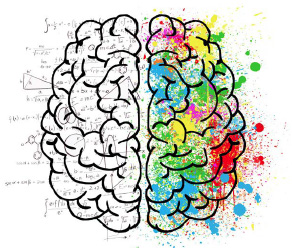Vision For Education
“You better study hard, or you’ll be a cleaner!”
“Huh? You want to be an artist? How to earn money?”
“Applying for a new job? How much is the pay?”
Many of us would be familiar with these statements uttered by our well-meaning parents and teachers. The need to study hard to get a certificate in order to get a good job and secure your future is ingrained into our national psyche. It’s a competitive, individualistic system that is based on a survival of the fittest mentality. We see it in kids starting enrichment classes from the time they’re two years old, parents doing all they can to get their kids into the best kindergartens and primary schools, University students trying to outbid each other for spots in the most popular classes and internship placements, and so on. The goal? To pursue the “good life” as found in financial stability and material comforts for self and family.
This system has produced students who have done well on the international stage, as reflected by our stellar PISA and IB scores. But it has also come at a high cost, evidenced by the growing numbers of youth who suffer from depression and anxiety (The Straits Times, 18 May 2018), the rising numbers of suicides (The New Paper, 30 May 2018), and young people who find little meaning in life (The Straits Times, 17 May 2018).
Clearly, something is wrong. We hate this pressure-cooker system and lament that our kids have been robbed of their childhood. We may be able to afford our condos and family holidays, but often at the expense of personal health and precious time with our families. Yet too often our default reaction is, “no choice – what to do? If they don’t score, they can’t find a good job.” Or we blame the government for not changing their criteria for hiring. But do we really have no choice in shaping the educational journey of our next generation? And is this really the “good life” that God intended for us to live?
Fortunately for Christians, there is good news. We have a better reason for all our schooling years and beyond, and it has everything to do with the God and His Kingdom: education is about learning to love God and His people, and being equipped to serve in His kingdom.
LOVING GOD WITH OUR MINDS
Our minds have been given to us by God. Just like our bodies, they are a gift that we are to steward well. To ensure our minds do not grow flabby, we need to exercise them by memorizing, sorting, connecting, wrestling, problem-solving, creating, analyzing, exploring and questioning – the very same things that we do in school!
But does it mean that thinking about anything and everything is a way of loving the Lord with our minds? Scripture tells us to take every thought captive to Christ (2 Cor. 10:5) and not to be conformed to this world, but to be transformed by the renewing of our minds (Romans 12:1-2). That means we need to strengthen our minds to think God’s thoughts after Him and to understand how His truths speak into our materialistic, secular, post-modern, post-truth world. In other words, our next generation must be trained not just to think critically, but also Christianly, about all things.
Indeed, loving the Lord with our minds is not confined to memorizing and meditating on God’s Word, as important as those are. It also means deeply contemplating all of God’s World – because He created every corner of it. Christ, the Logos, preeminent in all things (Col. 1:15-19) and in whom all treasures of wisdom and knowledge are hidden (Col 2:3), invites us to discover aspects of his infinite wisdom through every subject we study.
Math then is no longer just about numbers and equations; it reveals the order and beauty of God the Greatest Mathematician who graciously gave us a language that would help us understand and explain His world. History is not about memorizing boring facts, but a study of God’s providence and grace over generations. The sciences reveal His precision, ingenious creativity and tender care towards all creation, and languages become a way of exploring God’s love for His people and His desire to communicate with them! Every subject gives us an opportunity to love and worship the Lord anew.
LOVING NEIGHBOR AS SELF
 Education is also intrinsically tied to the second part of the greatest commandment – to love neighbor as self. Rather than collecting certificates for our own vain-glory and better promotional prospects, this commandment reminds us that the obtaining of knowledge and skills must be for the benefit of others.
Education is also intrinsically tied to the second part of the greatest commandment – to love neighbor as self. Rather than collecting certificates for our own vain-glory and better promotional prospects, this commandment reminds us that the obtaining of knowledge and skills must be for the benefit of others.
In school, students learn about team-work, how to deal with stress and leadership skills, all of which hone godly character and teach us how to love our neighbor better. But through education, students specifically learn the knowledge and skills they need to love and serve others with competence. God, the Master Designer and Craftsman, cares about good work. Over the six days of creation, God looked at all that He had made and said that it was tov, meaning good, beautiful, fitted to its design and purpose.
As image-bearers and stewards, our work should be good too. The process of education helps us hone our craft in writing, calculating, designing, and building. We are learning to love our neighbor by making life a bit more beautiful, comfortable, just, kind, orderly, and good for our communities and society.
GOD’S VISION FOR EDUCATION
What would it look like if Christians caught God’s vision for education?
Perhaps the church would once again be a place of great learning, just as it was during the Middle Ages when monks studied not only theology, but also philosophy, astronomy, music, law and botany; or in the 17th century when Christian scientists paved the way for the flourishing of modern science.
Perhaps Christian students truly discover the joy of learning because every subject is a way of deepening their worship of God.
 Perhaps Christian parents would be willing to release their children to explore their God-given talents in all spheres of life (even in the arts!). And they do so because they know that helping their children discover God’s call for their lives is much more important than a fat paycheck and comfortable retirement.
Perhaps Christian parents would be willing to release their children to explore their God-given talents in all spheres of life (even in the arts!). And they do so because they know that helping their children discover God’s call for their lives is much more important than a fat paycheck and comfortable retirement.
And perhaps all of us would find greater meaning in our jobs – whether we are administrators, engineers, teachers, IT managers, mothers, accountants or designers – because we know that all the knowledge and skills we’ve acquired are God’s gifts to us; gifts that enable us to partner with God to bring His shalom into every corner of human existence.
Dare we make the choice to subscribe to God’s vision for education? To measure our standards of success to His KPIs? We are more than conquerors in Christ who loved us (Romans 8:39).


